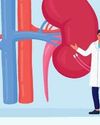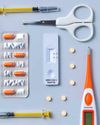
Sugar has been a hot topic of debate for many years now and is regularly demonised for causing various health issues. There is research that suggests consuming large quantities of sugar is associated with dental caries and weight gain, which in turn may also increase the risk of type 2 diabetes, heart disease, stroke, and some cancers. However not all sugars are equal. It is important to understand the differences and to acknowledge that not all sugars need to be limited in your daily diets. But for those that do enjoy sweeter foods there are some alternatives that may be of use.
The World Health Organisation (WHO) recommends adults and children reduce their daily intake of free sugars to less than 10 per cent of their total energy intake. A further reduction to below 5 per cent or roughly 25 grams (6 teaspoons) per day would provide additional health benefits.
The Australian Health Survey found more than half of all Australians aged 2 years and up exceeded the WHO recommendation to reduce their daily intake of free sugars to less than 10 per cent of their total energy intake. And the majority of free sugars consumed were from nutrient-poor and energy-dense 'discretionary' foods and drinks.
Sugar
Sugar is a type of carbohydrate. When you eat carbohydrate (sugar and/or starch) containing foods the body breaks it down into glucose which then enters the bloodstream to be used by your body's cells to create energy. Carbohydrate is the body's main and preferred source of fuel. For people living with diabetes, it is important to eat the right type and amount of carbohydrate foods to help manage your blood glucose levels.
Sugars can occur naturally in some nutritious foods such as milk and fruit. These foods provide a wealth of important vitamins and minerals and should therefore be included as part of your daily diet.
This story is from the {{IssueName}} edition of {{MagazineName}}.
Start your 7-day Magzter GOLD free trial to access thousands of curated premium stories, and 9,000+ magazines and newspapers.
Already a subscriber ? Sign In
This story is from the {{IssueName}} edition of {{MagazineName}}.
Start your 7-day Magzter GOLD free trial to access thousands of curated premium stories, and 9,000+ magazines and newspapers.
Already a subscriber? Sign In

A whole new world
Being diagnosed with type 1 diabetes as an adult can be a challenging and confusing time. In this extract from the JDRF's new book, Straight to the Point, they explain what's going on and what to say to people who make uninformed comments about your condition

5 Days 5 Dinners
Weeknights are sorted with these fresh, flavoursome mains, packed with veg!

Fantastic Feta
This soft, white cheese with Greek origins is versatile and packs a flavour punch, with only a small amount needed to jazz up a dish

My story: "I'm proud of the fact that I've gotten hold of my health"
When Natalie Rixon, now 33, discovered she had prediabetes soon after she'd turned 20, it was a shock and a relief all rolled into one. What she did next changed her future.

INTERPRETING YOUR cgm DATA
A continuous glucose monitor is a wonderful source of information but do you really know what you're looking at?

7 NEED-TO-KNOW FACTS ABOUT...diabetes & kidney disease
Diabetes is the most common cause of Chronic Kidney Disease. Learn more about this condition and how to protect yourself from developing it.

GET OFF THE diet ROLLERCOASTER
Dietitian Lyndi Cohen wants you to take a deep breath and think about your weight, and health, in a whole new way.

WHAT IS Wegovy?
Meet Wegovy, the new once-weekly weightloss injection that research shows helps people lose significantly more body weight than those using diet and exercise alone.

MEDICATION & CONSUMABLES
Insulin is available on the Pharmaceutical Benefits Scheme (PBS).

DOLLARS AND DIABETES
When you have type 1 diabetes, it's important to see a variety of health professionals regularly to keep your health on track.